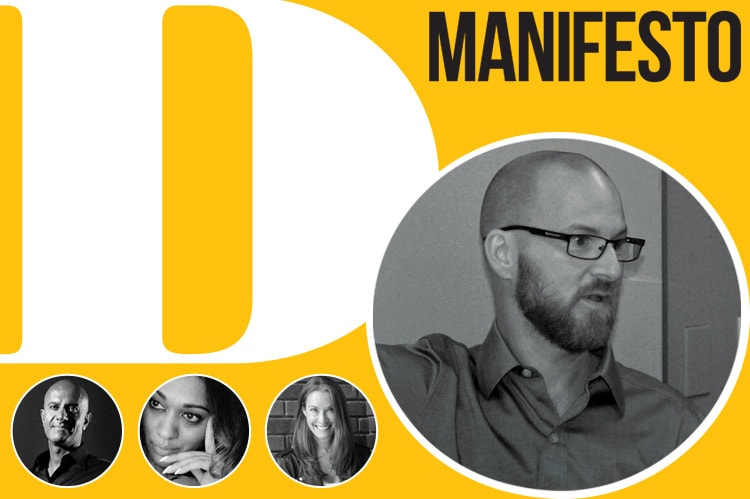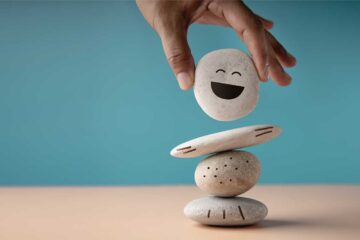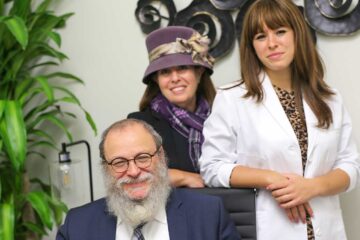The Pursuit of Happiness – The DO Manifesto
Happiness expert Paul Krismer talks about the importance of happiness and how to change your mind.
CITY LIFE: What is your No. 1 tip to start the year off right?
PAUL KRISMER: I would say the very most important tip is to consciously invest in your own personal happiness. The science is really strong on this point. People who make the investment [to] learn a little of what we now know through science effectively brings more happiness — it works. When you invest in happiness, you become happier.
We’re often so busy, this time of the year included, [and] we tend to get so caught up in the whole rat race, that we don’t give the priority necessary to our own well-being. When we love ourselves, we have way more capacity to serve others.
CL: How does someone invest in happiness?
PK: The positive psychology research that is coming out shows that most of the things that people can do to become happier are really just learned skills. One, for example, is have a regular gratitude practice. Every day write down three things that went well in your past 24 hours. It’s super simple, but the science is incredibly solid and anybody can do it. And I know sometimes people create these false beliefs that they are not entitled to happiness or they are not capable, or it’s something that they have to postpone for later in their lives after they accomplish or acquire something. That’s all just a bunch of baloney. We all can find a tiny bit of time to do some of these practices like writing down three things that went well.
CL: It’s really a practice of recognizing the things in your life that you already have that are making you happy.
PK:It’s not the positing and reflecting on what you’re grateful for in the last 24 hours that is important, even though that does in the moment cause you to feel happier. The real point of the practice is training your brain to look for things that are going well. We all have to; our natural upbringing [gives us something like] radars that are looking across our experience [for] things that are threatening or not going well — problems to solve. That’s the way the human brain evolves. It’s really helpful for us, but it makes for negative life experiences if that’s all we’ve got. Every time we stop and look at our past 24 hours and say, “what went well,” we are effectively building a new radar system saying, “throughout my life, in my universe of experiences, what’s going well?” I’m training myself to see it.
When I first started the practice, like many people who first started it, you’re someone who is not very good at finding three things. I had to scratch my head and say, “did three things go well?” Which is ridiculous, of course, because we all have things go well. But I’ve now trained my brain to be genuinely scanning my experience all the time for things that go well.
CL: It is a psychological exercise in a sense.
PK: Yeah, it’s very much literally reprogramming one’s brain and automating the experience of finding things that are going well.
CL: What would you say is the importance of happiness?
PK: On the one level, of course, we all want to feel happy. The obvious answer is that happiness is its own reward. We want to feel that way. But one of the things that I think is essential for people to understand is that we, in fact, have greater life success when we’re happy. The science again is extremely clear: when people are experiencing a lot of positive emotions they experience big, bona fide health benefits, better immune response, lower heart rate, more energy, all kinds of health benefits. Cognitively they function better. We’re literally smarter when we’re in a positive mood. Our friendships and relationships are enhanced. People who have a lot of positive emotions get a greater career and income success. There’s a whole cascading number of bona fide, demonstrated benefits that come from positive emotions.
And it makes sense from a natural perspective. Nature rewarded good times in our lives with positive emotions. Those good times generally made us stronger, more sociable and better capable of navigating the planet. As we get more positive emotions we actually feel the foundation with which to get more success in life, because of these things like greater help, better career success, better relationships, better cognitive functions.
People might say, well you are so lucky, how are you so lucky? Well, no. If you’re looking to create your own luck, invest in your personal happiness, because then you start actually being able to navigate the universe with more tools at your disposal.
“There’s a whole cascading number of bona fide, demonstrated benefits that come from positive emotions”
CL: How does meditation contribute to your well-being?
PK: I don’t think I can recommend that any more highly. The science behind this one is super good. The positive psychology movement has only been around for 20 years. What we know that’s true about meditation is that people actually change the way that they experience the world. We can demonstrate this even objectively on scientific imaging. You can teach young meditators to meditate for just 20 minutes a day for eight consecutive weeks, and if you do MRI scans of their brain before the practice starts and after, you’ll see that in just eight weeks of meditative training, the left prefrontal cortex of their brain literally thickens. More grey matter, more grey density, on the part of our brain that controls emotional regulation and our sense of contentment. The science has gone from people subjectively coming back from meditation to this point where we can actually look at the brain in real time, and we do know that meditation has a tremendous host of physical and emotional and mental benefits. Since my thing is happiness, we know that it leads to greater contentment and acceptance of what is. Maybe a better appreciation for the moment, instead of ruminating on our past mistakes or worrying about our future, you can just be with what is. Usually, in the North American, 21st-century lifestyle, from moment to moment, life is pretty good.
If I were in my head, I might be going, “Oh, that bad thing happened last week and I wonder what I should do about it.” Or I’m going, “Oh, I’m worried I’m not going to make my connecting flight in Vancouver.” Not to say that I have overcome those things, but through many years of meditation, I think I’m less susceptible than I once was to getting caught up with worries and ruminations than I was without meditation.
CL: It’s given you a peace of mind and a positive and optimistic outlook …
PK: And a realistic outlook. When you’re in the moment you are seeing what is actually happening. When you’re in your head, you are making a story. You worry about the past or you worry about the future, it’s all kinds of fiction, to some degree. Your past memories might be based on some level of truth, and your future worries might be based on some level of anticipated concern, but there’s a lot of fiction in our brains. Whereas if I can be really present in the moment, I’m only seeing what’s actually happening, what my senses truly are perceiving. There’s a world of difference between the stories in my head and reality.

Paul Krismer
Paul Krismer | Chief Happiness Officer
Paul Krismer is a public speaker and trainer. For 20 years, he has served in senior management roles overseeing hundreds of staff, multi-million-dollar projects and growing future leaders.














































































No Comment